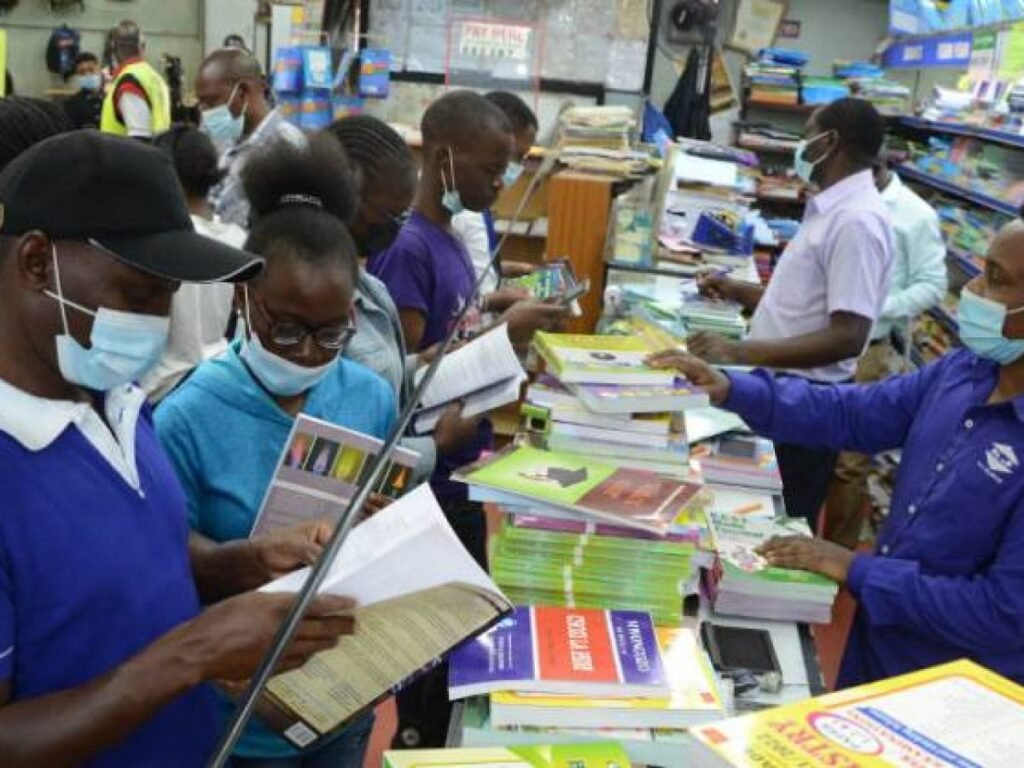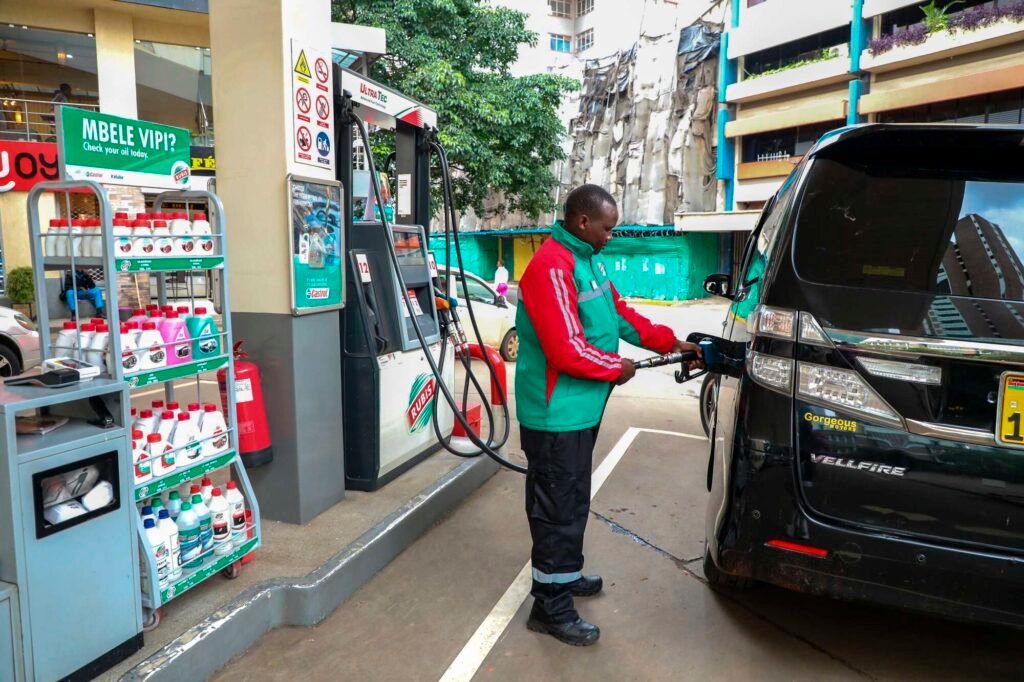General News
Larry Madowo’s High-octane Viral Interview With Ghanaian MP

Kenyan CNN journalist Larry Madowo has been in the internet spotlight courtesy of a no-holds-barred interview with a Ghanaian MP who is pushing for an anti-LGBT+ bill.
In a session on CNN’s evening talk show, The Exchange, Madowo faced off with Sam George, the MP who sponsored the proposed bill that criminalises homosexual activities in the West African nation.
The twenty-minute interview attracted mixed reactions after Madowo took to his official Twitter handle to air his opinion on the interview.
“This is one of the most contentious interviews I’ve ever done on live TV. I asked a Ghanaian MP pushing an anti-LGBT bill why he wants to legalize hate & homophobia,” he tweeted.
The interview takes a different turn when Larry asks the legislator if he wants to “make it hard for Ghanaians to live openly and freely on the person they choose to love.”
George responds “You have not read my bill,” a response that most people used to jump to the conclusion that the journalist was ill-prepared and had not read the Bill prior to the interview.
At one point it gets personal when Madowo cuts in and dwells on everything but the content of the Bill prompting the MP to read the Bill word for word.
Below, excerpts of the interview…
Larry: We are talking about conversion therapy which is considered torture, and your Bill would legalise that. Do you want to torture people in the name of curing Homosexuality?
George: I was making the point that individuals who decide to become transgender, apart from surgery also engage in hormonal treatment. Is that torture? Because I don’t see the difference between hormonal therapy and what you call hormonal treatment.
Larry: They are very different. This is a very false equivalence you are making, Sir.
George: What is the difference? Make me understand.
Larry: I am not a medical expert. But the UN experts who have looked into this consider it torture…
But what is the Ghanaian anti-LGBT+ Bill about?
When introducing the guest on his show, Madowo describes the Bill, which is set to be debated this month, as one that ‘promotes hate and homophobia’ and introduces the harshest anti-LGBT regulations.
However, George says it is a way to “promote Ghanaian family values.”
In an article by Reuters on Thursday, August 12, U.N. human rights experts warned that the bill (if passed into law) could give rise to “a system of state-sponsored discrimination and violence” against sexual minorities.
The experts then urged authorities to reject the proposed law.
The Promotion of Proper Human Sexual Rights and Ghanaian Family Values Bill, 2021, was introduced in parliament on August 2, 2021, and is expected to go before lawmakers for debate in October.
General News
IMF Criticizes Kenya’s Fuel Subsidy Re-Introduction, Warns of Budget Distortion

The International Monetary Fund (IMF) has criticized Kenya for re-implementing the fuel subsidy scheme, expressing concerns that the lack of funds to pay oil marketers could distort the budget.
Despite a previous commitment by President William Ruto in 2022 not to subsidize pump prices, the government reintroduced the subsidy, preventing petrol and diesel prices from reaching higher levels in October 2023.
The IMF argues that the subsidy was applied without available funds, as the Treasury has yet to pay oil marketers at least Ksh9 billion ($55.6 million) accumulated from the previous year. President Ruto’s decision to reinstate subsidies goes against conditions set by the IMF for accessing loans.
Petrol and diesel prices, which were Ksh217.36 ($1.34) and Ksh205.47 ($1.27) respectively in Nairobi in October 2023, remained lower than the potential Ksh220.43 ($1.36) and Ksh217.11 ($1.34) due to the subsidy. However, the IMF disapproves of the decision, emphasizing that the removal of the subsidy was a key condition for a 38-month budget support scheme.
The IMF criticizes the prolonged process of forming a taskforce and delays in implementing decisions regarding fuel pricing.
The removal of the subsidy in May of the previous year led to record-high pump prices, crossing the Ksh200-mark later in the year due to a combination of subsidy removal and a VAT increase to 16 percent.
Kenya’s administration, faced with rising fuel costs, chose to reinstate the subsidy, prompting the IMF to raise alarms over the lack of budgeted funds and potential distortions in the country’s financial plans.
The ongoing disagreement highlights the challenges and consequences associated with balancing domestic economic policies and meeting international financial commitments
General News
Parents in Meru County Turn to Second-Hand Books Amid Economic Hardships

As the back-to-school rush season unfolds in Meru County, a growing number of parents are making a strategic choice to purchase second-hand books for their children.
This decision stems from the challenging economic conditions that have prompted families to seek ways to cut costs.
Among these parents is Ms. Prisca Gakii, who revealed that opting for second-hand books allows her to save money, which can then be allocated towards essential expenses like school fees.
She highlighted a practical advantage for Form-One students, emphasizing that using older books can protect them from potential theft, as new books often become targets for less scrupulous classmates.

Ms. Gakii pointed out a notable price difference, citing an example of a new Oxford dictionary priced at almost Sh1,900, compared to a used one available for Sh1400.
She justified her preference for the older but more affordable option, emphasizing that they contain the same content.
Janet Wamuyu, a second-hand books trader, shed light on the lucrative nature of their business during the opening of the first term, which coincides with the peak season.
As learners transition to new grades or classes, there is a heightened demand for various books, including dictionaries, Kamusi, and Golden Bells.

Wamuyu explained that this period, especially when Form-One students are joining school, facilitates easy acquisition of books for new stock.
The trading process involves exchanging books for the next grade or class at a lower rate, providing an economical alternative for parents instead of purchasing an entirely new set of books.
She further noted that their source of new stock comes from parents whose children have completed their studies and no longer require the books.
Despite the success during the peak season, Wamuyu acknowledged the challenges faced during other times of the year when only a few revision books are in demand, highlighting the cyclical nature of the business in Meru County.













